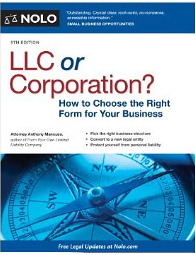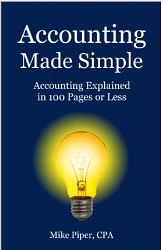The Fictorians and our guest bloggers have spent the month of March covering a number of legal topics and issues with which we feel every writer should have some familiarity. If we didn’t cover a topic you’re interested in, drop us a line and we’ll see if we can squeeze it in in the upcoming months.
All of these posts, however, rest upon a common premise; that is, as writers we should also be business people. Writing a work is only the beginning of the story—getting that work published and in the hands of readers is the rest of it, and that takes some understanding of a lot of different aspects of the business. And perhaps even more of the story is revealed when you consider how you’re going to keep that work in front of and available to readers after the initial blush has worn off. That’s all part of the business world in which we writers—now more than ever—have to operate.
We have to be business people, and we have to be focused on our own business—the marketing and dissemination of our creative work. Emphasize the ‘we’. Underline it, put it in bold italic 24 point Gothic font with flashing red lights. If we don’t manage our own business, if we don’t take responsibility for managing our own affairs, we can’t expect anyone else to do it for us. We have to know enough to take care of the day to day work and decisions. We have to know enough to know when we need to consult with or hire a professional to address a problem. And we have to know enough to be able to tell if that professional is getting the job done.
I wish that Robert Asprin was still with us. More than any other writer I know, he could have given a testimonial about this.
Robert was a pretty successful mid-list fantasy and science fiction author in the 1980s-1990s, who unfortunately ran afoul of the Internal Revenue System after one of his books actually made it to the New York Times bestseller list. I don’t know all the details of the story, but I do know that he ended up having to make monthly payments to the IRS for over a decade. He died in 2008, literally just a few weeks after making the final payment to pay off his tax bill.
So, yes, paying attention to detail and keeping track of the information and getting the forms right and turning everything in on time is important. Robert would bear witness to that. Just like reading the contracts and taking the time to learn what each of those paragraphs of legalese really means is important if we want to continue to own and manage our works.
The problem is that most creative people really really really don’t like the boring humdrum routine of doing what the commercial world calls the back office routines. I certainly don’t. But if we don’t stay on top of our correspondence, if we don’t gather all the material together for tax preparation and payments, if we don’t read those contracts before we sign them, etc., then we’ll deserve the problems that come of them.
The goal of every Fictorian is to not only be a successful writer, but to be a professional writer. Hmm, actually, that may be two different ways of saying the same thing; because every successful writer that I know is also very professional about taking care of business.
That’s the consistent message of the Superstars of Writing seminars: that to a great extent, a writer’s success is founded on not just his skill at the craft of writing, but also how well he manages the business side of his career.
So in pursuit of that goal, we’ve spent this month talking about various aspects of the writing business. Our hope is that you’ve found knowledge or confirmation among the various topics. Keep in mind that none of what has been presented represents legal or financial advice. Always consult an attorney or an accountant if you have issues arise. Pay the money. You’ll be better off, and the fees are tax deductible.
I want to thank all the Fictorians and guest posters for their many and excellent contributions, most especially M. Scott Boone who gave us not one, not two, but three guest posts this month.
Stay tuned—we’ll resume our themes about the writing side of the writer’s life tomorrow.


